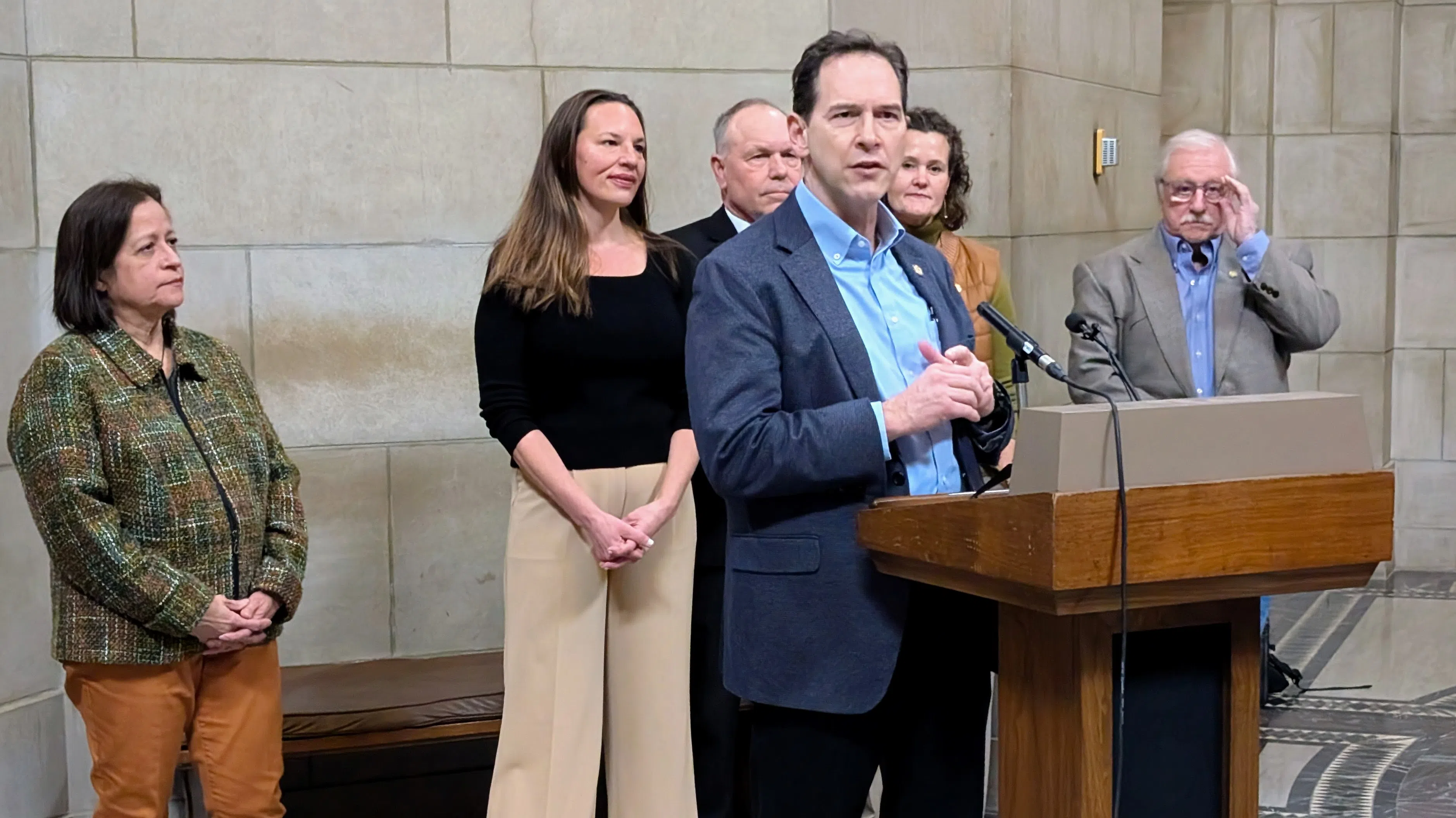A group of Nebraska Senators are starting off the 2025 legislative session by trying to patch-up a “loophole” which precluded about 85% of residents from receiving a reduction on their property taxes.
Last July, lawmakers were called back to Lincoln by Gov. Jim Pillen to address property tax reform. The bill passed by senators, LB 34, essentially took existing property tax credits which residents needed to apply for and “front loaded” them so residents would no longer need to apply for them.
But in doing so, they retroactively eliminated the “back-end” credit for the 2023 tax year if you paid your property taxes after Jan. 1, 2024 – something the vast majority of property owners did. Date from the Nebraska Department of Revenue shows that only 15% of residents paid off their property taxes in 2023 — thus receiving the back end credit.
This was not the intention of the bill, said Sen. Brian Hardin of Gering during a Thursday press conference in the state capitol rotunda.
“We did not realize, that inadvertently, we caused a problem as we set about the solution,” said Hardin, flanked by a small group of bipartisan senators. “What ended up effectively happening is we ended up making life more miserable for the 85% of people who did not pay their property taxes in 2023.”
The bill to fix this issue, LB 81, was formally introduced before the conference.
“Essentially what our repair bill does is to say let’s acknowledge it, let’s have a conversation about fixing it,” Hardin said. “There was no sleight of hand going on by the Revenue Committee or anyone involved in that process. We truly didn’t realize that what we made was an expensive error.”
Hardin estimates about $750 million is owed back to Nebraska property owners.
“Because of the program design changes in LB 34, many property taxpayers who did nothing wrong were left out of comprehensive relief,” added Sen. Danielle Conrad of Lincoln. “This needs to be a first order of business and discussion in the 2025 legislative session.”
Conrad said fixing this hiccup in LB 34 is crucial for lawmakers to accomplish before they work on the biennial budget — the only piece of legislation which lawmakers are constitutionally required to pass.
“If we don’t have this remedial curative legislation before the legislature, we can’t be at the table to negotiate on behalf of Nebraska property taxpayers when that budget is finalized this year. That’s why we’re coming in with an early hearing, with an early introduction, hoping for an early hearing to make our case that we should make this right in the biennial budget,” Conrad said.







